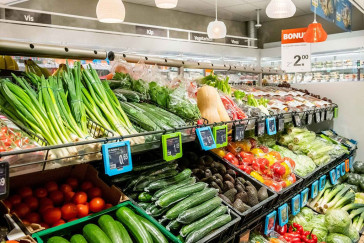There is an increasing awareness that the landscape around cities can contribute significantly to the well-being of urban citizens. Various studies and experiences in the Netherlands and other countries show that the combination of agriculture with care and education has great potential. The number of care farms has increased from 75 in 1999 to 500 in 2005. In urban areas, a diversity of groups can benefit from care farms or other types of social services in the rural area. It concerns among others, people with mental problems, with (chronic) psychiatric demands, with addiction problems, elderly, children with behavior and/or psychological problems and long term unemployed. The city of Amsterdam recognizes the unique and valuable qualities of the rural area and its potential for the well-being of its citizens. In and around Amsterdam various organizations have initiated innovative projects that connect urban demands with agricultural entrepreneurs. A transition to a new kind of agriculture and landscape contributing to health and well-being of urban citizens is possible.

● Ambitieuze beleidsdoelen en diverse stimuleringsmaatregelen maken de vraag naar groen gas veel groter dan het aanbod is.● Zonder prijsdempende maatregelen en innovatie in de productie van groen gas zal de prijs van groen gas fors stijgen tot 2030.

Kunnen we uit stedelijk openbaar groen serieus fruit en noten oogsten? Dat is de centrale vraag bij het project ‘Vruchtgebruik’ van Hogeschool Van Hall Larenstein. Het project zoekt praktische antwoorden en roept op om een langetermijnvisie te ontwikkelen op openbaar groen en duurzame voedselsystemen.
MULTIFILE

Uit cijfers van het CBS zien we dat de vraag naar biologische producten achterblijft. De meerprijs die consumenten moeten neerleggen voor biologische productalternatieven blijkt een belangrijke belemmering te zijn voor de overstap naar biologisch. Hoe kunnen we deze gepercipieerde prijsbarrière bij de consument overkomen?

Diverse partijen, zowel marktpartijen als kennisinstellingen, gaan in 2020 samenwerken in een pilot om te toetsen in hoeverre zij de plant kardoen (familie van de artisjok distel) in haar volle potentieel kunnen gebruiken voor diverse commerciële doeleinden, zoals bloemen, voedsel, composiet en een lamp. Er wordt in deze pilot onderzoek gedaan naar: - Gebruik van reststromen als bodemverbeteraar - Teelt van kardoen - Verwerking van kardoen
The transition towards an economy of wellbeing is complex, systemic, dynamic and uncertain. Individuals and organizations struggle to connect with and embrace their changing context. They need to create a mindset for the emergence of a culture of economic well-being. This requires a paradigm shift in the way reality is constructed. This emergence begins with the mindset of each individual, starting bottom-up. A mindset of economic well-being is built using agency, freedom, and responsibility to understand personal values, the multi-identity self, the mental models, and the individual context. A culture is created by waving individual mindsets together and allowing shared values, and new stories for their joint context to emerge. It is from this place of connection with the self and the other, that individuals' intrinsic motivation to act is found to engage in the transitions towards an economy of well-being. This project explores this theoretical framework further. Businesses play a key role in the transition toward an economy of well-being; they are instrumental in generating multiple types of value and redefining growth. They are key in the creation of the resilient world needed to respond to the complex and uncertain of our era. Varta-Valorisatielab, De-Kleine-Aarde, and Het Groene Brein are frontrunner organizations that understand their impact and influence. They are making bold strategic choices to lead their organizations towards an economy of well-being. Unfortunately, they often experience resistance from stakeholders. To address this resistance, the consortium in the proposal seeks to answer the research question: How can individuals who connect with their multi-identity-self, (via personal values, mental models, and personal context) develop a mindset of well-being that enables them to better connect with their stakeholders (the other) and together address the transitional needs of their collective context for the emergence of a culture of the economy of wellbeing?